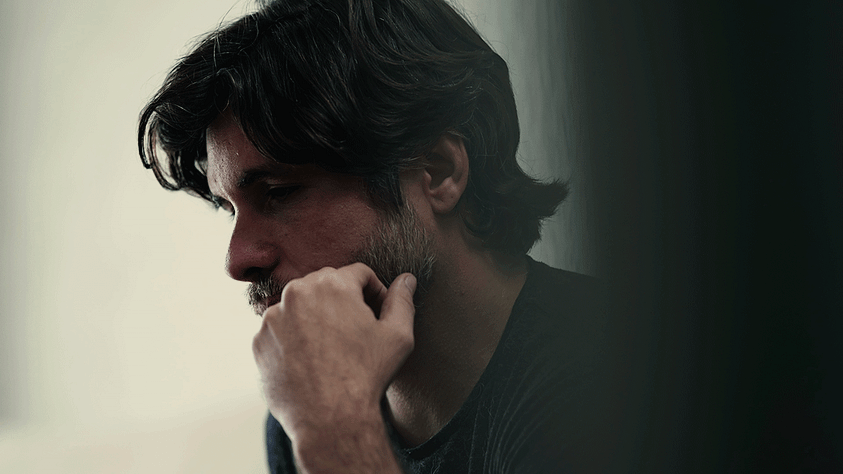Can you die from heroin withdrawal? It rarely happens, but some people have died of heroin withdrawal symptoms. A recent study published in the Journal of the Society of the Study of Addiction found that a few people have died of heroin and other opioid withdrawal. The leading cause of death was dehydration or electrolyte imbalances from vomiting and diarrhea. If you’re seeking a heroin addiction treatment center North Carolina residents rely upon for holistic treatment, Red Oak Recovery® can help.
At Red Oak Recovery®, we know that drugs like heroin can have a dreadful effect on a person’s life. However, with time, patience, and the proper treatment, it is often possible to manage these effects. Through treatment, most clients are able to recover successfully, living a life free from drugs or alcohol. However, the first step is to get through heroin withdrawal safely and in relative comfort. Contact us at 866.457.7590 to learn more about our heroin addiction treatment center.
Why Do People Begin Using Heroin?
The reasons people start using heroin vary widely. Some begin to self-medicate undiagnosed mental health conditions like depression or anxiety. Others try heroin due to peer pressure or curiosity. Many use heroin to escape difficult life circumstances, such as:
- A history of abuse or trauma
- Witnessing violence
- Living in poverty
- Having a parent who uses drugs
- Early exposure to drug use
A common reason people start using heroin is addiction to prescription opioids. When they can no longer get drugs like oxycodone or hydrocodone, they often turn to heroin.
What Is Heroin Withdrawal?
Heroin withdrawal occurs when someone dependent on heroin stops taking the drug. Dependency is related to tolerance. All opioids develop tolerance in the body over time. Tolerance means people need to take more of a drug over time to receive the same effect. Dependency means they need to take the drug to feel normal.
According to the National Institute on Drug Abuse, heroin causes intense degrees of tolerance and dependence. When people who are dependent on heroin stop taking it, their bodies and mind are suddenly disrupted. The symptoms can start within a few hours of the last heroin dose. Can you die from heroin withdrawal? Severe withdrawal symptoms combined with no medical care have resulted in a few deaths.
What Are Heroin Withdrawal Symptoms?
If you’re wondering can you die from heroin withdrawal, former heroin users have described their withdrawal symptoms as worse than the worst flu you ever had. Early heroin withdrawal symptoms include:
- Agitation and anxiety
- Muscle aches
- Insomnia
- Runny nose
- Excessive sweating
- Abdominal cramps and diarrhea
- Goosebumps
- Nausea
- Vomiting
When someone stops using heroin without warning, most medical experts say that the person is quitting cold turkey. The term originated with the goosebumps, and clammy skin people experience while withdrawing from heroin or other opiates. If you’re wondering whether you can die from heroin withdrawal, remember that dehydration and heart irregularities could be life-threatening. For that reason, cold turkey withdrawal is risky.
Can Heroin Withdrawal Be Dangerous?
Can you die from heroin withdrawal or experience serious health risks? Dehydration due to vomiting and diarrhea is the most significant health risk from heroin withdrawal. Everyone’s body is different. If heroin users are young and relatively healthy outside of their drug use, they may be able to overcome peak symptoms, which last for two to three days.
Health risks for heroin withdrawal rise with other physical complications. Diabetes, heart disease, and malnutrition can all increase the risk of dangerous heroin withdrawal symptoms.
How Can Heroin Withdrawal Symptoms Be Treated?
A professional heroin addiction treatment center can help clients taper off heroin gradually. It can also provide medication-assisted treatment, which provides FDA-approved medications to help clients manage heroin withdrawal. These treatments often lead to higher chances of long-term recovery and fewer chances of dangerous health concerns as a result of this process.
Some medications used for medication-assisted treatment (MAT) for opioid use disorders can help to ease withdrawal symptoms. Methadone and Suboxone are MAT medications that help in long-term opioid recovery and during the early days of withdrawal. Other drugs that can ease withdrawal symptoms include clonidine and lofexidine.
Why Should You Consider Professional Heroin Addiction Treatment After Detox?
After individuals addicted to heroin has completed the withdrawal period, they can begin addiction treatment, including a gender-specific men’s rehab program for young adult males between the ages of 18 to 30. Long-term use of opiates like heroin causes changes in body, mind, and spirit. Recovery will involve physical, emotional, and spiritual healing.
Most heroin addiction treatment programs use a 12-step model or similar framework. These steps help those battling heroin addiction to identify the root causes of their heroin use and develop a plan to avoid heroin in the future. Addiction treatment can last anywhere from 30 days to 90 days or longer, depending on the needs of the individual.
Take the Next Step in Healing at Red Oak Recovery®
Red Oak Recovery® offers holistic healing, including our psychotherapy program. Our therapeutic options for substance use disorders include treatments such as:
A holistic approach to recovery can help to build long-lasting sobriety and a return to health. If you’ve gone through heroin withdrawal, the next step in treatment is a heroin addiction treatment program. Do you need to learn more about how this treatment option can improve your recovery outcomes? If so, call Red Oak Recovery® today at 866.457.7590 or use our online contact form.









